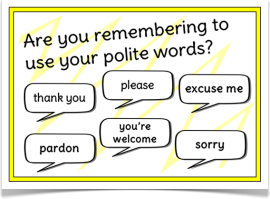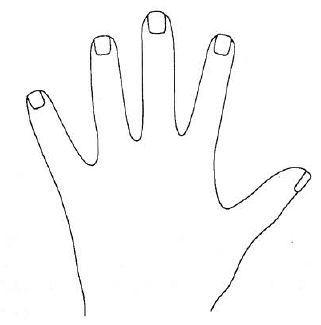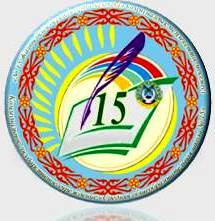| Topic: Mind your manners.
| Date: | Period: 1/45min |
| Aim: to develop students’, reading, listening and speaking skills on the topic “Mind your manners”. |
| Learning Objectives At the end of the lesson pupils will be able to: -know about greetings from different countries; -roleplay the situations in pairs; - express their own opinion about manners; -talk abou t manners in different countries. |
| Modules of the Programme New approaches to teaching and learning Learning to think critically Assessment for and of learning Teaching talented and gifted children Using ICT in teaching and learning Responding to age-related differences in teaching and learning Management and leadership in learning |
| Resources Support: objective presentation, cassette/СD, video, cards with tasks, pictures, smart board, sheets of paper, stickers |
| Methods and Techniques | Individual work, pair work, group work; Listening, reading, speaking and writing exercises |
| PROCEDURE OF THE LESSON
|
| Stages | Time | Teacher’s activities | Students’ activities | Tools/ Modules |
| M o t i v a t i o n |
| I Organizational moment
| 2 min | Greeting Teacher turns on the classical music. 
http://mp3-crazy.com/klassicheskaya_muzyka/64863-vivaldi-vremena-goda-vesna-allegro.html Antonio Vivaldi –Spring (Allegro) | Students listen to the music look at the words on the slide and guess the topic of the lesson | Power Point Presentation, mp3, pictures, polite phrases and expressions Modules 1,4,5
|
| III. Warm up | 10 min | Teacher turns on the video and give cards with tasks. https://www.youtube.com/watch?v=D_hBK8Ni4yQ Greeting Etiquette from around the World 
Students work in pairs and match countries with their greetings. GREETINGS FROM AROUND THE WORLD Match the countries with the appropriate greeting. | 1)India 
| a)- Greetings are rather formal due to the hierarchical nature of society. - The common greeting is the handshake, often done with both hands and a smile. Since many Kazakhs are Muslim, some men will not shake hands with women, so be sensitive to these religious differences. | | 2)United States 
| b)Bow from the waist to a 15 degree angle. This is an informal bow used for all ranks and occasions.
| | 3)Middle East 
| c)Shake hands firmly. Follow with a "bear hug" and 2 to 3 kisses on alternating cheeks.
| | 4)Japan 
| d)The "namaste." Place your hands in a praying position at the chest and bow slightly. | | 5)Russia 
| e)Clasp both hands in a handshake and hug on both sides while saying, “merhaba” (“greetings”). (This gesture is generally performed among old friends)
| | 6)Latin America 
| f)Three kisses, going from cheek to cheek. | | 7)Kazakhstan 
| g)Hug (called an "abrazo") and give a few hearty claps on the back.
| | 8)Turkey 
| h)The "salaam." Begin by pronouncing “ salaamu alaykum” (Peace by upon you), accompanied by sweeping your right hand up to your heart.
| | 9)Belgium 
| i)Shake hands firmly and make direct eye contact. | Answers: 1 d 2i 3h 4b 5c 6 g 7a 8e 9f  Which of the greetings do you like most and why? Explain your choice. Which of the greetings do you like most and why? Explain your choice. What do you think good manners are? Can you think of some examples bad poor manners?
|
Students watch the video and match greetings with the countries | Worksheets with tasks, Power Point Presentation, video Modules 1,4,5,6 |
| B u i l d i n g K n o w l e d g e |
| IV Listening. 
| 3 min
2 Min
| Pre-listening. What do you know about the manners in Great Britain? What is the most special feature of this country? What so you think are British people polite or not? Express your opinion.   2)While listening activity. Students will listen to the interview with Simon Fanshawe, author of a book called ‘The Done Thing’, all about modern British manners. True or False? Decide if each of the following statements about the text are true or false. 1. The interviewer is going to talk to a particular type of person T\F 2. One person thinks people’s manners are worse on public transport T\F 3. Simon Fanshawe thinks class affects people’s manners when eating T\F 4. Fanshawe thinks that manners are a way for friends to interact peacefully T\F 5. The interviewer thanks Simon Fanshawe for speaking. T\F 6. With me here is Simon Fanshawe, author of a book called ‘The Done Thing’, all about modern British traditions. T/F 7. ‘Please’ and ‘Thank You’ is a gift and a grace in any language so treat people in the fundamental purpose of manners which is to make life easier. T/F Answers: 1. False - an interesting mix of views; 2. False – in buses and trains… people’s manners have improved; 3. True - there are two ways of holding a knife … middle-classes … working-class; 4. False – the reduction of actual or potential violence between strangers; 5. True – it would be very bad manners of me not to say ... 6 False- manners 7 True 3) Post-listening activity  Is it important for people to be polite? What is the role of manners in our life? Is it important for people to be polite? What is the role of manners in our life? | Students tell their predictions, their opinions.
Then students listen to the interview and define which statements are true and which statements are false
|
|
| V Speaking. Work in pairs.

VI. Group work 
| 7 min
10 min
10 min | Role-play. Situational dialogues. Teacher divides students into pairs and gives them cards with tasks.   
Situations: SITUATION 1 Student A: you are on a train. Ask someone you don’t know to close the window. Student B: You are reading a book on a train. You don’t know anybody. SITUATION 2 Student A: you are with your friend. Decide what to do at the weekend. Student B: you are with a friend. Decide what to do at the weekend. You start. SITUATION 3 Student A: you see your middle-aged neighbor in the street. Ask him/her to post a letter for you. Student B: you are a middle-aged neighbor. You are just going out of your house. Situation 4. Student A: you are an English teacher. Ask your English if you can give in your essay late. Student B: you are a middle-aged neighbor. You are just going out of your house. Useful phrases and expressions: Excuse me? Could you pass the salt, please? You are welcome. I’d rather not, thanks. Do you think I could have a word with you? Would you mind giving me a lift to school? Thanks a lot. That’s very kind of you. Oh, I’ve forgotten it! I’m really sorry. Formative assessment strategy ‘Smiles’. Students have got 3 types of smiles: happy, normal, sad.   
Manners in different countries. Making posters. Teacher divide students into 3 groups with a help of pictures. Great Britain Russia Kazakhstan
  
Roles: Speaker Designer Teacher Secretary
Assessment paper | Groups | Grammar \vocabulary (10-20 points) | Creativity (5-10 points) | Speaking (10-20 points) | Total (50 points maximum) | Students’ mark | Teacher’s mark | | I group Astana |
|
|
|
|
|
| | II group London |
|
|
|
|
|
| | III group Moscow |
|
|
|
|
|
|    Formative assessment strategy ‘Two stars and one wish’.
| Ss complete the diagram.
Ss read the article and match titles with the paragraphs.
After the dialogues students show smiles, expressing their reaction.
Students work in groups of 4. There are 3 groups.
Students work with texts and make posters.
Students present their posters and assess each other. They assess each other using the strategy ‘Two stars and one wish’
|
Exercises, coursebook
Modules 1,2,3,4,5,6,7
Modules 1,2,3,4,5,6,7 Assessment papers
After the dialogues students show smiles, expressing their reaction.
Modules 3. 4, 5 Videos
Worksheets with tasks |
| C o n s o l i d a t i o n |
| VI. Feedback
Reflection. | 5 min | Strategy ‘Mixed poem’. Teacher gives students 12 mixed lines from the poem. Students should put these lines into the correct order and make a poem. Manners! Manners! Don't be rude be nice Manners will make your brain think twice! Chew with your mouth closed Cover when you sneeze. Use your manners Around other people please. In the shops, even at the beach Use them and people will think you're a peach. If it's sunny or raining In the shops or at dinner Use your manners And you'll be a winner!
Five Fingers  
| Students work in groups and make poem ordering the lines.
Students write on the fingers 5 the most important things from today’s lesson. | stickers, cards / Modules 1,3,5,6,7
PPt presentation Palms, markers Modules 1,3, 4, 5 |
| Homework | 1 min | To write a composition on the topic ‘Better good manners than good looks’ (180-200 words) | Ss write down the homework in their diaries. | Modules 3,4,6 |
| Assessment
|
| Check that pupils (Q&A and practical): Q&A after introduction to check that objectives are understood Q&A during the lesson to check everyone is following | Criteria, colorful sticks |





































